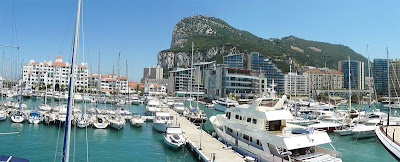On Monday 9 July, Fabian Picardo delivered his first Budget as Chief Minister of Gibraltar. Amongst the good news in his leather “Budget Box” was the abolition of import duty for vessels over 18 metres in length and a reduction from 12% to 6% for vessels under 18 metres. The move is expected to stimulate growth in the superyacht sector and encourage longer-term berthing in marinas such as Ocean Village.
Under pre-Budget legislation, vessels were classed by gross tonnage with those less than 80 gross tons liable to pay import duty at the rate of 12% whilst vessels above 80 gross tons were not liable to pay import duty at all – this meant that the leisure boater lost out. But with this latest move berthing in Gibraltar now offers them a great advantage.
Moreover the change in vessel classification from tonnage to metres is conceptually easy to explain, and therefore market Gibraltar as a berthing destination, at the same time as bringing the Rock in line with methods used by most of its European counterparts.
Albert Mena, Tax Partner at Hassans, the largest law firm in Gibraltar, comments, “Import duty on vessels is only triggered upon the actual importation of the vessel into Gibraltar. This means that, in practice, any Gibraltar resident can own and use a vessel and not be liable to pay any import duty – so long as the vessel is kept away and never imported into Gibraltar.”
Meanwhile, across the border in Spain, the yachting industry continues to conduct its long battle against the 12% matriculation tax that the Spanish authorities have applied to the first definitive registration of recreational boats more than eight metres in length. This tax does not apply in any other EU country and, with VAT (IVA) at 18%, this means that buyers of moderate to large yachts face a surcharge of nearly a third of the retail price.

